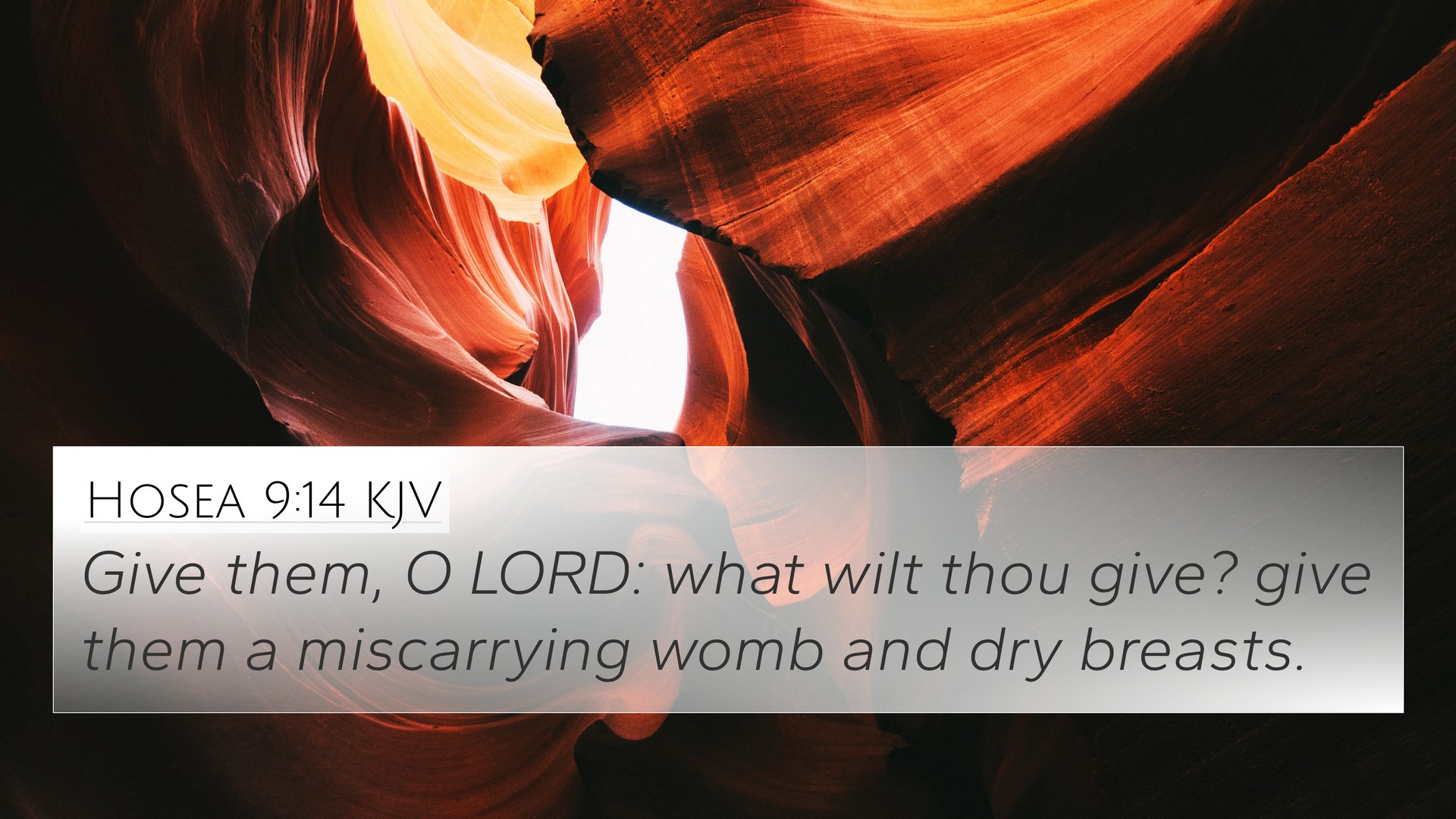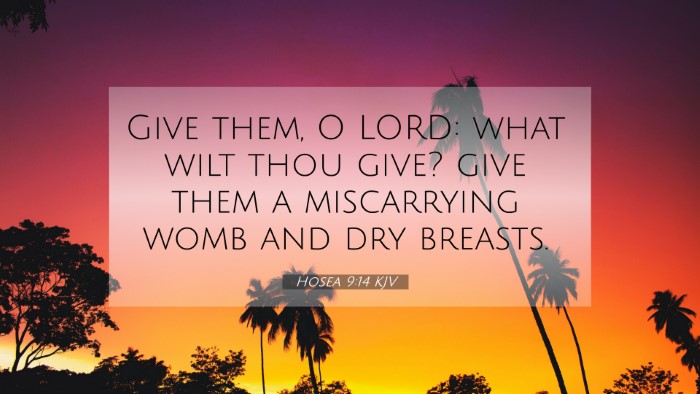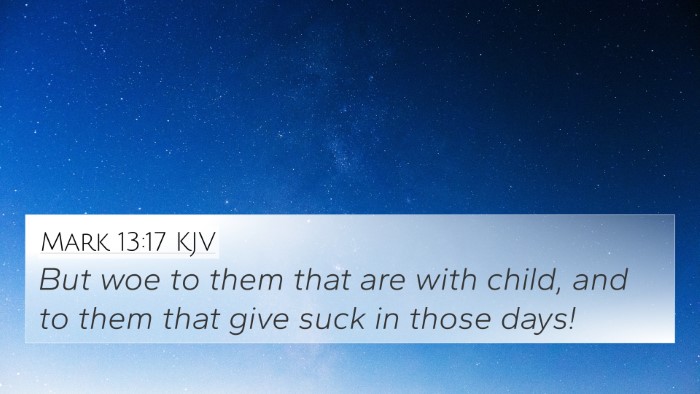Old Testament
Genesis Exodus Leviticus Numbers Deuteronomy Joshua Judges Ruth 1 Samuel 2 Samuel 1 Kings 2 Kings 1 Chronicles 2 Chronicles Ezra Nehemiah Esther Job Psalms Proverbs Ecclesiastes Song of Solomon Isaiah Jeremiah Lamentations Ezekiel Daniel Hosea Joel Amos Obadiah Jonah Micah Nahum Habakkuk Zephaniah Haggai Zechariah MalachiHosea 9:14 Similar Verses
Hosea 9:14 Cross References
Give them, O LORD: what wilt thou give? give them a miscarrying womb and dry breasts.
Uncover the Rich Themes and Topics of This Bible Verse
Listed below are the Bible themes associated with Hosea 9:14. We invite you to explore each theme to gain deeper insights into the Scriptures.
Hosea 9:14 Cross Reference Verses
This section features a detailed cross-reference designed to enrich your understanding of the Scriptures. Below, you will find carefully selected verses that echo the themes and teachings related to Hosea 9:14 KJV. Click on any image to explore detailed analyses of related Bible verses and uncover deeper theological insights.
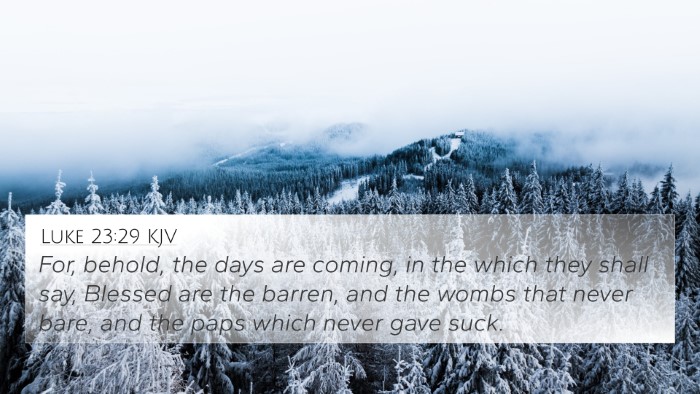
Luke 23:29 (KJV) »
For, behold, the days are coming, in the which they shall say, Blessed are the barren, and the wombs that never bare, and the paps which never gave suck.

Job 21:10 (KJV) »
Their bull gendereth, and faileth not; their cow calveth, and casteth not her calf.
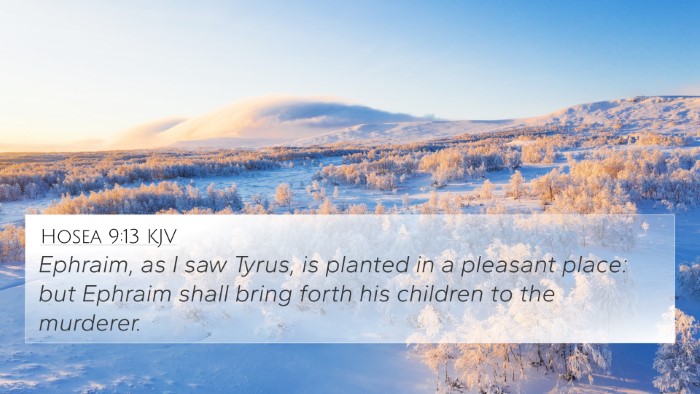
Hosea 9:13 (KJV) »
Ephraim, as I saw Tyrus, is planted in a pleasant place: but Ephraim shall bring forth his children to the murderer.
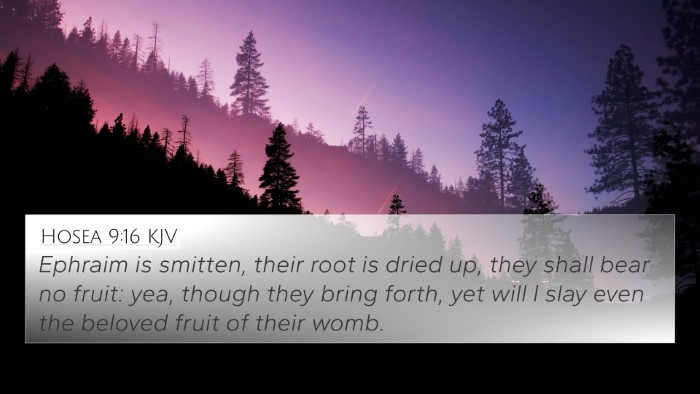
Hosea 9:16 (KJV) »
Ephraim is smitten, their root is dried up, they shall bear no fruit: yea, though they bring forth, yet will I slay even the beloved fruit of their womb.
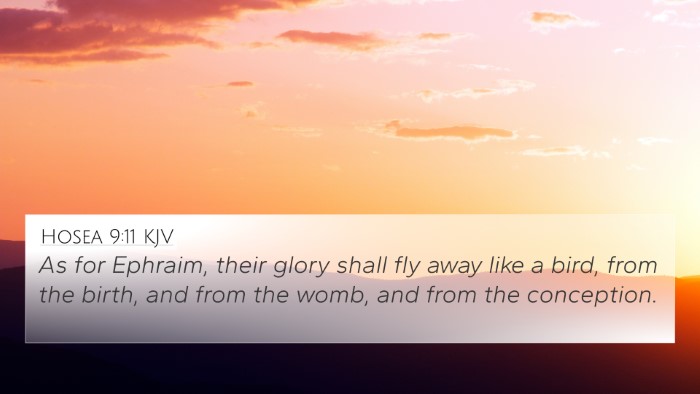
Hosea 9:11 (KJV) »
As for Ephraim, their glory shall fly away like a bird, from the birth, and from the womb, and from the conception.
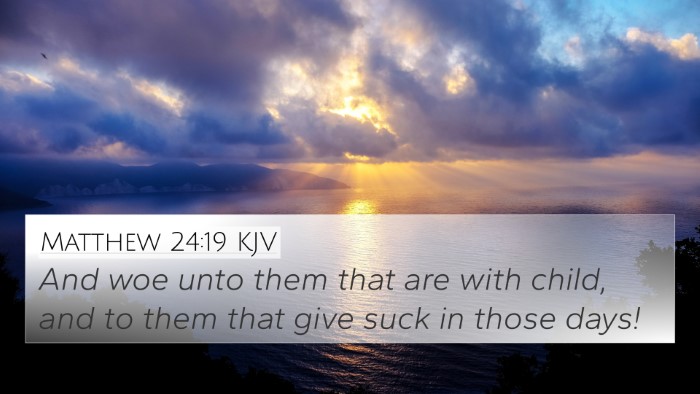
Matthew 24:19 (KJV) »
And woe unto them that are with child, and to them that give suck in those days!
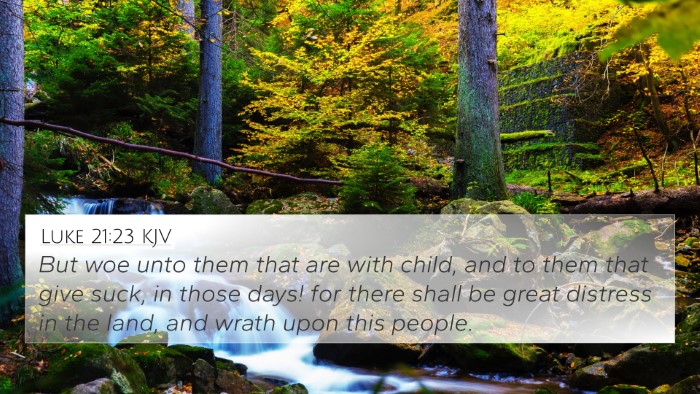
Luke 21:23 (KJV) »
But woe unto them that are with child, and to them that give suck, in those days! for there shall be great distress in the land, and wrath upon this people.
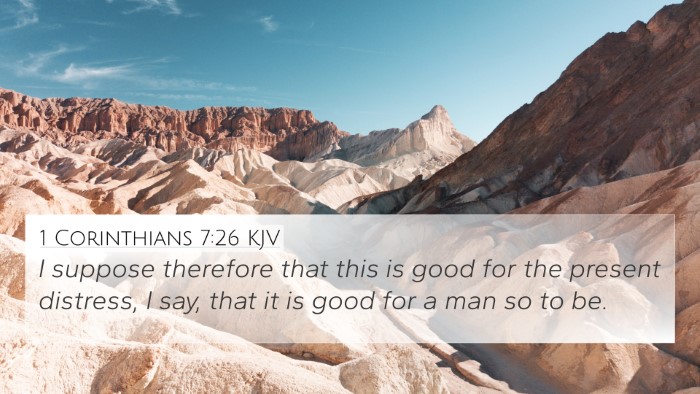
1 Corinthians 7:26 (KJV) »
I suppose therefore that this is good for the present distress, I say, that it is good for a man so to be.
Hosea 9:14 Verse Analysis and Similar Verses
Bible Verse Meaning: Hosea 9:14
Hosea 9:14 states: "Give them, O Lord: what wilt thou give? give them a miscarrying womb and dry breasts."
This verse is part of a larger prophetic context where God, through Hosea, addresses the impending judgment and consequences of Israel's unfaithfulness. As we seek to understand its meaning, we can glean insights from public domain commentaries such as those by Matthew Henry, Albert Barnes, and Adam Clarke.
Summary of Insights
In this verse, Hosea is expressing a cry to God about the punishment awaiting the people of Israel due to their idolatry and sinfulness. Here’s a breakdown of its interpretation:
-
Divine Judgment:
Matthew Henry notes that this request reflects a profound sorrow and highlights the dire consequences of Israel's rejection of God. The "miscarrying womb" symbolizes barrenness and the inability to bear fruit, which signifies the unfruitfulness of Israel's spiritual state.
-
Parental Imagery:
Albert Barnes emphasizes the metaphor of dry breasts as a representation of how God would withdraw sustenance and care from His people, making them 'dry' and unable to provide for themselves spiritually or physically.
-
Call for Repentance:
Adam Clarke points out that Hosea's lament serves as a stark reminder of the consequences of sin, urging listeners to consider the significance of returning to God and seeking His favor.
Thematic Connections
This verse can be connected to numerous theological themes and scriptures that echo similar ideas about judgement, barrenness, and divine mercy. Here are some noteworthy cross-references:
- Isaiah 54:1: "Sing, O barren, thou that didst not bear; break forth into singing, and cry aloud, thou that didst not travail with child..." -- A call to rejoice despite former barrenness, signifying hope and restoration.
- Jeremiah 15:10: "Woe is me, my mother, that thou hast borne me..." -- Reflects the weight of lamentation for a nation in distress.
- Zechariah 10:9: "And I will sow them among the people: and they shall remember me in far countries..." -- Points towards God's restoration plan as an interjection of hope amidst judgment.
- Lamentations 2:20: "Behold, O Lord, and consider to whom thou hast done this..." -- A cry for awareness of grief and judgment upon God's people.
- Romans 1:28: "And even as they did not like to retain God in their knowledge, God gave them over to a reprobate mind..." -- An exploration of God's withdrawal as a judgment on unfaithfulness.
- 1 Samuel 1:5: "But unto Hannah he gave a worthy portion; for he loved Hannah: but the Lord had shut up her womb." -- Another instance of barrenness while holding significance within God's plan.
- Matthew 21:19: "And when he saw a fig tree in the way, he came to it, and found nothing thereon, but leaves only, and said unto it, Let no fruit grow on thee henceforth forever..." -- A New Testament echo of judgment upon unfruitfulness.
- John 15:2: "Every branch in me that beareth not fruit he taketh away..." – Jesus’s teaching on fruitfulness mirrors the theme of loss connected with unfaithfulness.
Scriptural Cross-Referencing and Thematic Connections
The connections between these verses deepen our understanding of Hosea 9:14, showcasing a consistent biblical theme regarding God's dealings with His people:
- Divine Retribution: The system of judgment for unfaithfulness is prevalent in both Old and New Testaments.
- Warning Against Idolatry: Many of these verses serve as warnings against turning away from God, highlighting Israel's struggles.
- God's Mercy and Restoration: Amidst the warnings of judgment, there are continual calls to return and receive God's mercy.
Tools and Methods for Bible Cross-Referencing
Cross-referencing allows for a deeper study and understanding of scriptures. Here are some tools and methods:
- Bible Concordance: A tool that lists words in the Bible and helps find passages related to specific themes.
- Bible Cross-Reference Guide: Guides that compile related verses to help in understanding Scripture's interconnectedness.
- Cross-Reference Bible Study: Engage in comparing scriptures to draw meanings from parallel texts.
Conclusion
Hosea 9:14 offers rich insights into the consequences of spiritual barrenness and the need for divine restoration. Through careful study and cross-referencing, one can appreciate how various scripture passages interconnect to reveal profound truths about God's character and intentions toward His people.
By exploring Bible verse cross-references and the connections between Bible verses, we may foster a deeper understanding of God's Word, thus enriching our spiritual journey.
